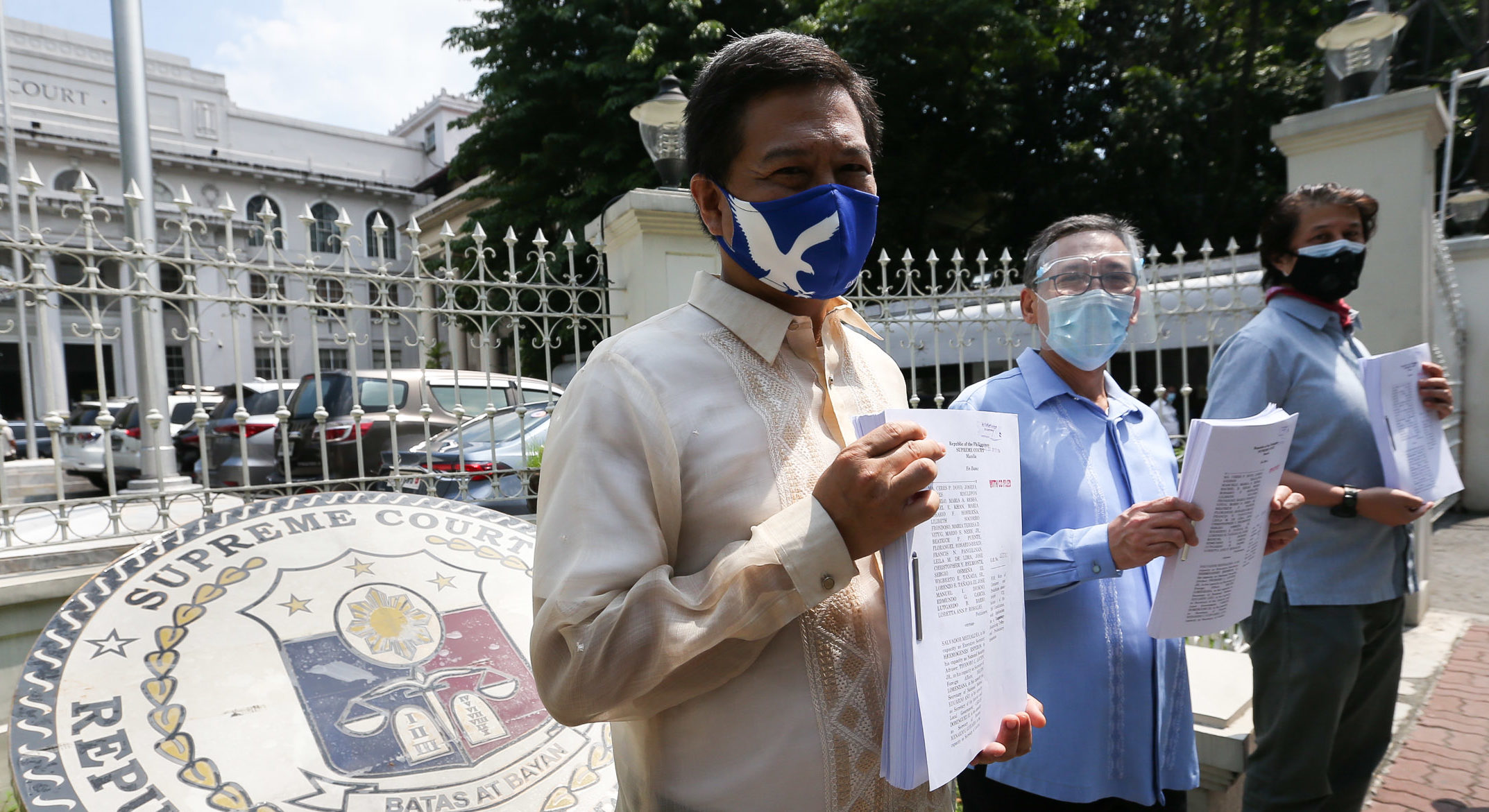16th petition vs terror law filed at SC

CHALLENGING THE LAW Former Rep. Erin Tañada, human rights lawyer Chel Diokno and Quezon City Rep. Kit Belmonte file the 12th petition against the antiterror lawat the Supreme Court—PHOTO BY LYN RILLON
The Anti-Terrorism Act of 2020 may end up the most challenged law before the Supreme Court, after five new petitions brought to 16 the total petitions so far that seek to nullify the new law for being unconstitutional.
Four groups of petitioners that included framers of the 1987 Constitution, lawmakers, human rights advocates, journalists, artists and youth activists filed their petitions on Thursday.
The Supreme Court disclosed that a separate petition was filed via email by a lawyer earlier this week.
Like earlier petitions filed after President Duterte signed Republic Act No. 11479 on July 3, the latest petitions argued that the new law against terrorism violated free speech and other constitutionally protected rights, and encroached into the judiciary’s exclusive authority on the arrest and detention of suspects.
In response, presidential spokesperson Harry Roque said the government “welcome[s] all these petitions as it [will be] the Supreme Court that will uphold the supremacy of the Constitution.
Article continues after this advertisementHe added: “So it is thanks to them [that] there will be a clarification if this new law against terrorism is really against the Constitution.”
Article continues after this advertisementRoque added that militant groups planning to stage a protest during the State of the Nation Address have reached an agreement with the Quezon City government for them to be allowed to hold rallies from 10 a.m. to noontime on Monday.
“So that shows the commitment of President Duterte to the right to freedom of expression and the right to peaceful assembly,” he said.

Another petitioner from Concerned
Artists of the Philippines, dramatizes the law’s silencing
effect on free speech. —PHOTO BY LYN RILLON
ConCom members
One group of petitioners before the Supreme Court was composed of 1986 Constitutional Commission members Florangel Rosario-Braid and Edmundo Garcia, Senators Leila de Lima and Francis “Kiko” Pangilinan, Quezon City Rep. Christopher “Kit” Belmonte, human rights stalwart Jose Manuel “Chel” Diokno, former Senators Sergio Osmeña III and Wigberto Tañada, former Rep. Erin Tañada, former Commission on Human Rights chair Etta Rosales, and journalists including Inquirer columnists Ma. Ceres P. Doyo and John Nery.
A group of 37 writers, journalists and artists led by National Artist for literature Bienvenido Lumbera also filed its petition.
The other petitioners were a group of four Muslim human rights lawyers led by former Bangsamoro human rights commission chair Algamar Latiph, a group of 16 youth and student groups, and lawyer Jose Ferrer Jr.
The first petition, filed in person by Diokno, asked that the terror law be struck down “for posing a clear and imminent danger to free speech” because of its “breathtakingly vague and overbroad” definition of terrorism.